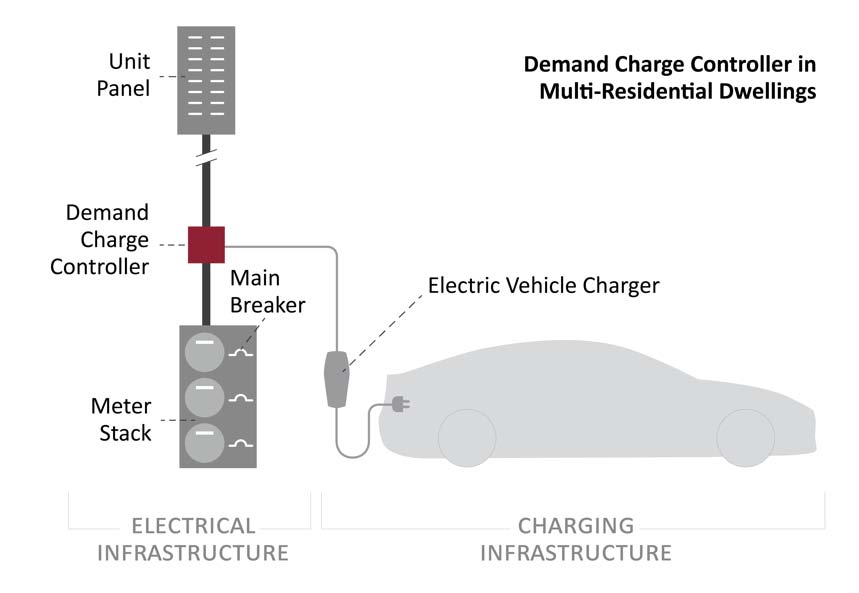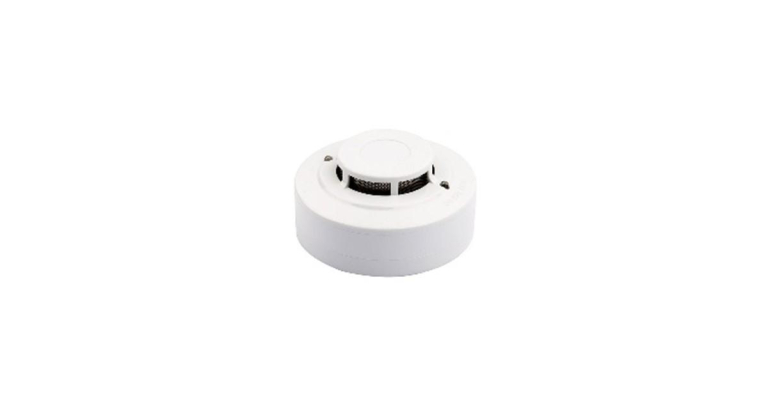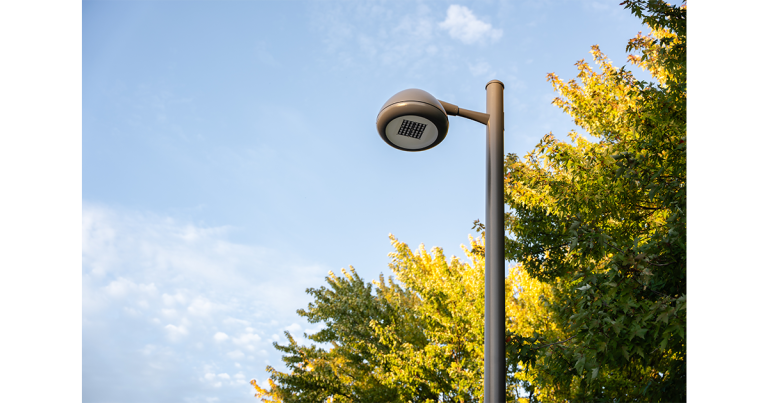Evolving Electric Vehicle Technology and the Response by EVEMS

May 5, 2019
 By David Corbeil
By David Corbeil
The definition of electric vehicle energy management systems — or EVEMS — is a recent addition to the Canadian Electrical Code. This addition allows for broader applications and answers to evolving electrical needs in the market with the uptake in electric vehicles. These devices are also commonly referred to as demand charge controllers, or DCCs.
The 2018 CE Code further recognized and addressed the evolving electric vehicle technology and issues associated with future loading on electrical infrastructure. Section 8 was expanded to include two new definitions:
• Control of electric vehicle supply equipment loads — the process of connecting, disconnecting, increasing, or reducing power to [electric vehicle] supply equipment.
• Electric Vehicle Energy Management System — a means of controlling [electric vehicle] supply equipment loads comprised of any of the following: a monitor(s), communications equipment, a controller(s), a timer(s), and other applicable device(s).
In many instances, the addition of electric vehicle supply equipment (EVSE) can result in the total load exceeding the existing service capacity. This is the main use case for the addition of EVEMS. A secondary option is to increase the service size but in practice, the cost is often prohibitive.
EVEMS technology is intended to limit and regulate the electrical loads when EVSE is installed to a load calculation at 100% of the rating. These devices dynamically and instantaneously control the EVSE loads in such a way that the overall load does not exceed the limits of the existing service, feeders, and branch circuits, with a tripping point generally set to 80% of available power.
Multi-unit buildings pose additional constraints than those seen in single-dwellings and an EVSE in the form of a demand charge controller — a DCC — is implemented in these scenarios. These devices are connected to the main panel intercepting the connection in proximity to the electrical meter, often in an electrical room. By intercepting the connection at ground level, the overall footprint of the installation is kept to the minimum required.
An EVSE installed and controlled by a demand charge controller (DCC) is capable of summing static and variable loads and controlling the variable load so that the total power consumption does not exceed the circuit rating.
The application of a DCC is identical when an EVSE is added to an existing single-dwelling home with a load calculation at 100%.

EVSE demand is unpredictably growing and the installation of DCCs is used in new constructions to mitigate the future impact on the residential service.
These types of devices are implemented in global retrofits for multi-unit dwellings, creating buildings ready to accommodate electric vehicles, or in new development plans to evade future upgrades and installations.
The cost benefits of this technology, in both retrofitting existing builds and in new construction, are significant for the building industry and the utility alike because maximum impact information on EVEMS technology is required at the design stage for any installation.
David Corbeil is the co-inventor of the DCC, Demand Charge Controller, and is the CEO at RVE, a company focused on residential electric vehicle charging solutions. He has considerable experience in the electric vehicle charging industry, beginning his career as an electrician, sits on the boards of the Association des Véhicules Électriques du Québec and Electric Mobility Canada. To get in touch: david@dcc.technology | www.dcc.technology

















